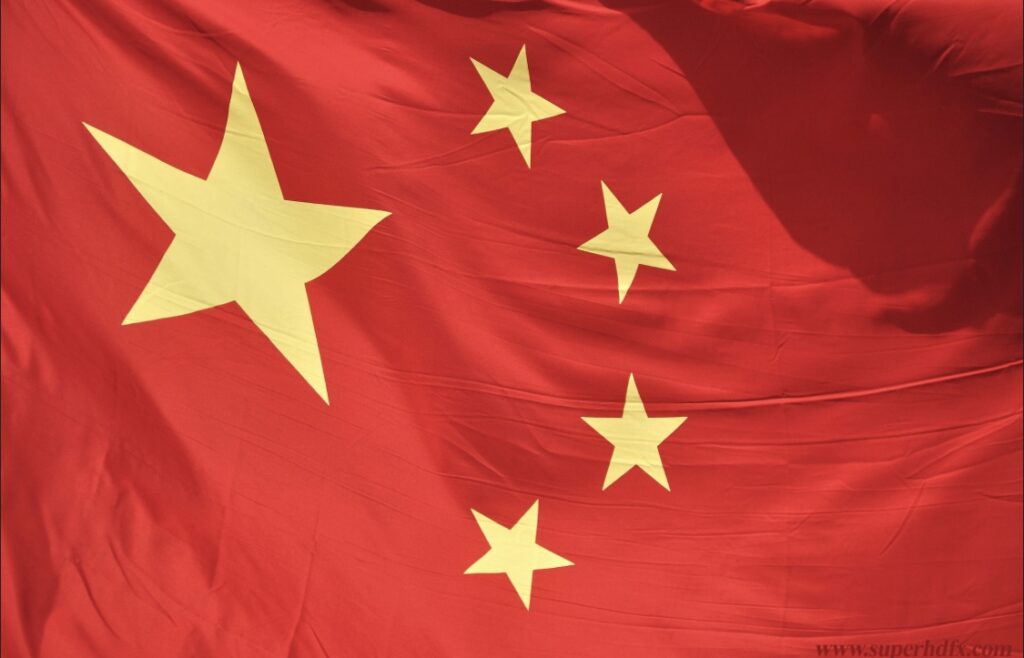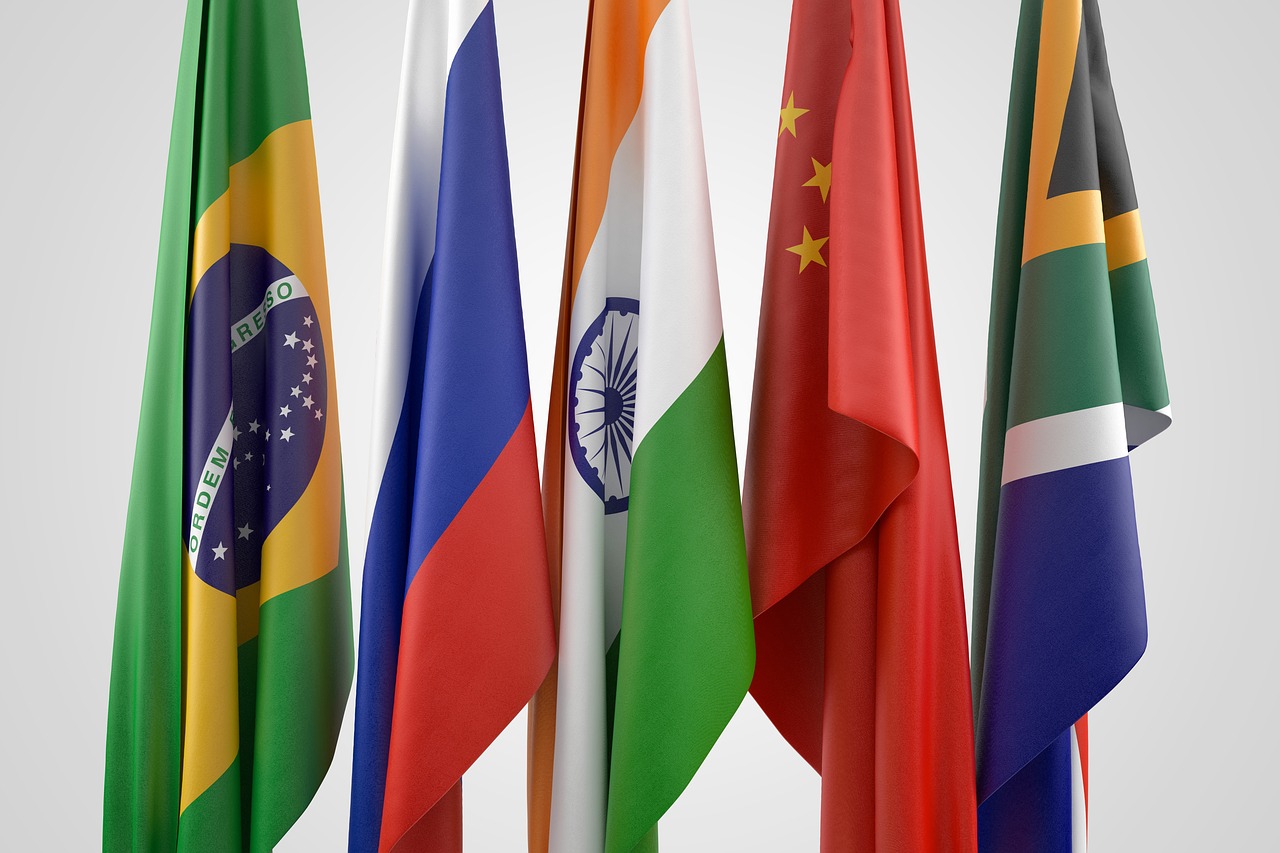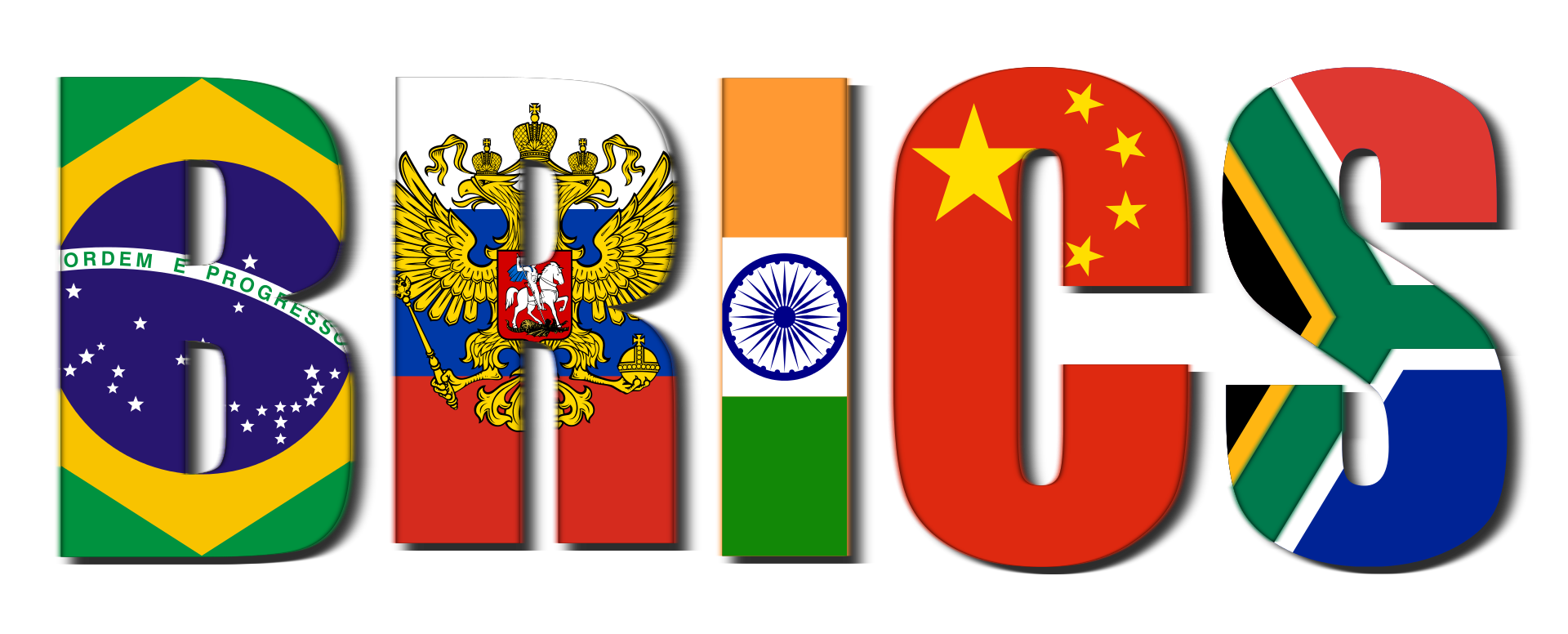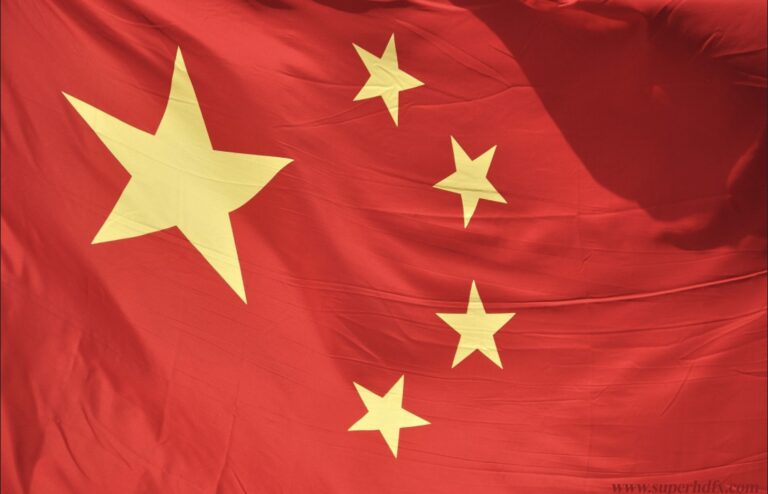
China's Flag embodies the One for All World Order Sought by Elite Handlers.
2025 BRICS Summit: The Rio Reset

Revealing the Truth About BRICS Nations Summit 2025
June 6, 2025 – Through concise and powerful Shorts, our BRICS Rio Reset playlist unpacks the BRICS Nations Rio Reset’s strategy, tools, and implications because if you want to understand the future of global finance, this is your front-row seat to a global economic shift. Watch, learn, and prepare for one of the most significant economic transitions of our time as it happens real-time July 6-7, 2025 in Rio De Janeiro.
-PLAYLIST- The 2025 BRICS Rio Reset Occurs July 6th and 7th in Rio De Janeiro
BRICS Summit 2025 and the Rio Reset: a Strategy to Deceive or Succeed?
June 2025 – Rio de Janeiro by: F. Walsh The BRICS nations—Brazil, Russia, India, China, and South Africa—will convene in Rio de Janeiro on July 6th and 7th, 2026 for one of the most pivotal global summits in modern history. Dubbed the “Rio Reset,” this year’s BRICS Summit marks the formal unveiling of a multi-nation strategy to accelerate global de-dollarization, promote gold-backed settlement systems, and launch a digital trade infrastructure outside the reach of the Western financial system.
The Rise of a Multipolar Monetary System
For decades, the U.S. dollar served as the cornerstone of international trade, thanks to its role as the world’s reserve currency. But the 2025 BRICS agenda outlines a clear departure from dollar-centric globalization. Leaders from each BRICS nation will present plans for expanding bilateral trade in local currencies and launching a commodity-backed digital currency bloc to facilitate cross-border settlement without relying on SWIFT or the Federal Reserve’s policies.
Has the time finally come that we decide to trust Gold again? Connect with Birch Gold Group and get their FREE Birch Gold Kit 2025 and some trusted advice TODAY! Click on any Birch Gold Banner to get the FREE Birch Gold Kit 2025 TODAY!
Click on any Birch Gold Banner to get the FREE Birch Gold Kit 2025 TODAY!
South Africa’s President calls the current global financial structure “a relic of colonial-era inequality,” while India and Brazil will push for greater representation of emerging economies in the IMF and World Bank—or the outright creation of BRICS-led alternatives. If BRICS+ gets what it wants, the Rio Reset summit’s closing declaration might state something like: “The era of single-currency global trade is over. The Rio Reset begins today.”
Gold-Backed Currencies Take Center Stage
One of the most anticipated announcements will probably come from Russia and China, who are jointly working a prototype for a BRICS settlement token backed by physical gold reserves. This token, might tentatively be named the “BRX Unit,” it would pilot between energy and resource exporters, including major deals with African nations and Gulf states. The token is designed to ensure settlement transparency and restore trust in cross-border trade following the weaponization of the dollar in recent sanctions regimes.
Commodity-backed trade is not just theoretical. In the lead-up to the summit, several trade deals involving gold-for-oil and lithium-for-agriculture were signed in anticipation of the new BRICS payment infrastructure. Analysts suggest this could set off a new gold bull cycle, as sovereign demand for physical gold continues to rise in anticipation of its role in this new monetary world.
Digital Infrastructure Beyond the West
Another key feature of the Rio Reset is the creation of a decentralized, blockchain-based international payment and data exchange system. Unlike the centralized SWIFT network, the new system—may tentatively be called BRICS Connect—uses smart contracts and distributed ledger protocols to verify and settle transactions across multiple jurisdictions without reliance on U.S. banks.

China’s central bank could announce its readiness to integrate its digital yuan (e-CNY) into the framework, while India could promote its cross-border version of the digital rupee. Brazil emphasizes that this new system will bring underserved nations into global commerce, especially in Africa and South America, where traditional banking infrastructure is lacking.
Geopolitical Reactions
While BRICS nations will hail the summit as a turning point, Western analysts expressing concern over the growing divide in the global financial order. U.S. Treasury officials will surely issue a statement warning that the shift toward non-dollar trade could destabilize global credit markets. Meanwhile, several NATO-aligned countries will also voiced caution about their future participation in BRICS-related trade frameworks, citing geopolitical alignment concerns.
Nonetheless, interest in joining BRICS continues to grow. More than a dozen countries—including Argentina, Iran, Saudi Arabia, and Indonesia—have expressed formal interest in membership or partnership with the BRICS+ initiative, further expanding the alliance’s geopolitical and economic reach.
What It Means for Investors and Everyday Citizens
As the BRICS bloc charts its path toward financial independence, global investors are watching for signals. Gold and silver prices spiked in the days leading up to the summit, while central bank gold purchases hit record levels in Q2 2025. Cryptocurrencies that align with decentralized trade—especially those supporting cross-border smart contracts—also saw renewed interest.
For everyday citizens, the long-term outcome could be profound: reduced dollar dominance may mean rising costs for imports in the U.S. and Europe, but greater monetary sovereignty for nations previously tied to IMF loans and dollar reserves. If successful, the Rio Reset could permanently reshape global wealth distribution and redefine how value is stored, exchanged, and preserved across generations.
The Road Ahead
The Rio Reset is more than a summit—it is a declaration of independence from the monetary status quo. Whether the BRICS nations can implement and scale their new systems remains to be seen, but one thing is clear: the age of U.S. monetary hegemony is facing its most credible challenge yet.
Stay tuned as we follow the BRICS Summit 2025 the Rio Reset July 6 and 7, 2925 as we watch the next chapter in this global monetary transformation.
 Click on any Birch Gold Banner to get the FREE Birch Gold Kit 2025 TODAY!
Click on any Birch Gold Banner to get the FREE Birch Gold Kit 2025 TODAY!
Revealing the Truth About BRICS Nations Summit 2025
Through concise and powerful Shorts, our BRICS Rio Reset playlist unpacks the BRICS Nations Rio Reset’s strategy, tools, and implications because if you want to understand the future of global finance, this is your front-row seat to a global economic shift. Watch, learn, and prepare for one of the most significant economic transitions of our time as it happens real-time July 6-7, 2025 in Rio De Janeiro-PLAYLIST- The 2025 BRICS Rio Reset Occurs July 6th and 7th in Rio De Janeiro
BRICS Summit 2025: The Rio Reset and the Future of Global Governance
The 17th BRICS Summit, held in Rio de Janeiro on July 6–7, 2025, marked a pivotal moment in the evolution of the BRICS alliance—comprising Brazil, Russia, India, China, and South Africa—especially as it expands to include new strategic partners. This gathering, widely dubbed the “Rio Reset,” showcased the bloc’s ambitions to rewrite global financial rules, challenge Western-led institutions, and solidify an emerging multipolar world order.
Expansion and the Rise of the Global South
Indonesia officially joined BRICS at the start of 2025, symbolizing the bloc’s deeper ties with Southeast Asia and growing influence in the Global South. As the world’s fourth most populous nation and one of the fastest-growing emerging economies, Indonesia’s membership strengthens the political and economic weight of BRICS on the global stage.
BRICS+ participation also expanded, with delegations from Egypt, Ethiopia, Iran, Saudi Arabia, and the United Arab Emirates attending the summit. These countries, having accepted invitations to join BRICS at the 2023 Johannesburg summit, now play key roles in shaping a shared South-South vision—anchored in sovereignty, resource independence, and collective bargaining power against the dollar-centric Western order.
De-Dollarization: From Concept to Implementation
Although speculation continues about a common BRICS currency, the Rio Summit took a more pragmatic path. Brazil’s Finance Ministry confirmed that a unified currency is not on the immediate agenda. Instead, the group is pushing for the expanded use of local currencies in trade settlements among members. This strategy is aimed at reducing reliance on the U.S. dollar and insulating economies from the risks of sanctions and dollar volatility.
In parallel, the New Development Bank (NDB), also known as the BRICS Bank, announced upgrades to its digital payment infrastructure. The initiative includes testing interoperability protocols that would allow cross-border transactions without SWIFT, using BRICS-issued payment tokens. These decentralized solutions are gaining traction as the world increasingly explores stablecoin-backed settlement frameworks.
Climate Finance and the Tropical Forest Forever Facility
Climate resilience featured prominently on the summit agenda. Brazil, as the host country and site of COP30 later in 2025, presented a proposal to create the Tropical Forest Forever Facility (TFFF)—a $125 billion climate fund to support tropical forest conservation. Eligible countries would include not just BRICS members, but also strategic Global South partners in Latin America, Africa, and Southeast Asia.
The fund seeks to operationalize a new model for climate finance—one that does not rely on IMF conditions or carbon offset schemes, but instead supports sovereignty-aligned green development. Lula da Silva emphasized that fighting climate change must include “global cooperation without global inequality.”
Strategic Shifts in Global Governance
The Rio Reset also advanced a deeper political message: it is time to reform the post-World War II institutions. BRICS leaders jointly reaffirmed calls to democratize the United Nations, expand representation on the IMF Executive Board, and move toward a less U.S.-centric global order. China and Russia called for “respect for sovereign models of development” and reiterated their support for multipolar diplomacy.
India played a balancing role, urging constructive engagement with both Western and emerging powers. South Africa emphasized using BRICS to tackle inequality, education, and infrastructure gaps across the African continent.
The Road Ahead
The 2025 Rio Summit will be remembered not just as a meeting, but as a movement. It marks the formal shift of BRICS from a trade dialogue to a geopolitical power bloc capable of setting global agendas. With the next summit planned for 2026 in India, attention will now shift to implementation: Will trade truly move beyond the dollar? Will the NDB evolve into a real challenger to the World Bank?
What’s clear is that BRICS is no longer a footnote—it’s a headline. The Rio Reset didn’t just realign policies. It realigned expectations. And for much of the world, that change is long overdue.



